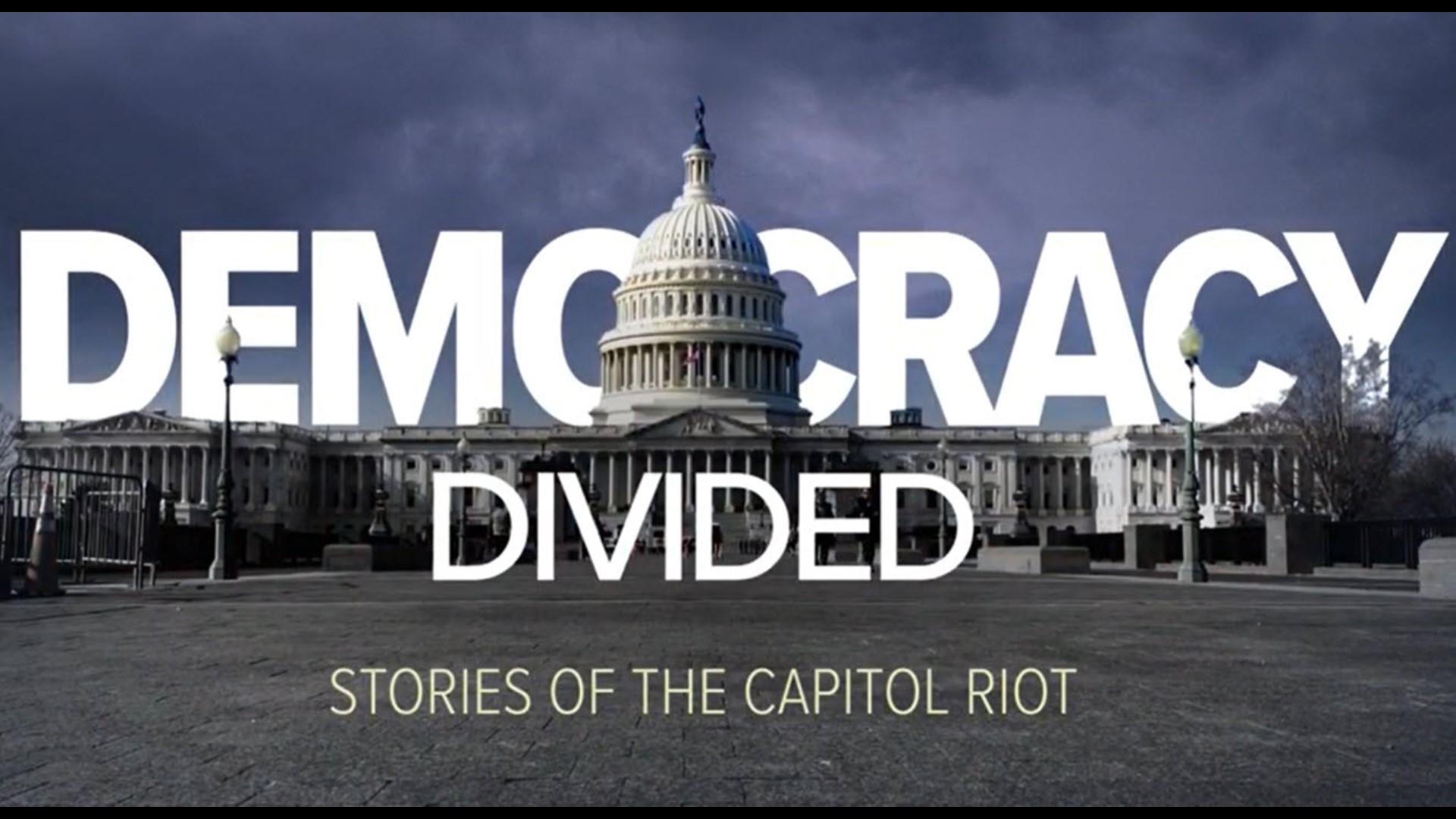WASHINGTON — UPDATE:
Timothy Hale-Cusanelli was found guilty on all five counts Friday. Read our full coverage here.
ORIGINAL:
A former Army reservist accused of obstructing the certification of electoral votes on Jan. 6 took the witness stand in his own defense Thursday – telling jurors that, despite his avid interest in politics and history, he had no idea Congress met in the U.S. Capitol Building.
It was a claim assistant U.S. attorney Karen Seifert hammered on repeatedly during cross-examination of the defendant, Timothy Hale-Cusanelli, who had testified earlier in the day he had “pretty extensive knowledge” of the process to certify electoral votes.
“I know this sounds idiotic, but I’m from New Jersey,” Hale-Cusanelli said. “In all my studies, I didn’t know there was an actual building that was called the ‘Capitol.’ It’s embarrassing and idiotic.”
Hale-Cusanelli, who faces a felony charge of obstruction of an official proceeding that could result in years in prison if convicted, took the stand after two full days of testimony from government witnesses. That testimony included text messages in which Hale-Cusanelli spoke in detail about the idea of states like Georgia sending faithless electors, claims of election fraud in Arizona and then-Vice President Mike Pence’s role in certifying the election. Jurors also heard a conversation recorded by Hale-Cusanelli’s roommate in which the defendant described being just outside the entrance to the House of Representatives on Jan. 6, and testimony from Hale-Cusanelli himself that former President Donald Trump had told him and others at his speech at the Ellipse to march down to the Capitol to “cheer on our brave senators and congressmen and women.”
Was it credible, Seifert asked, to believe a man who could explain the 17th Amendment – which established the popular election of U.S. senators in 1912 – or quote Thomas Jefferson and Benjamin Franklin on the fly also somehow did not know the Capitol building housed Congress? And if so, she continued, why didn’t he ever mention that in an interview with the FBI, in text messages or in the conversation with his roommate?
“The government submits that he didn’t think of that excuse until he got here and listened to [two] days of evidence in the government’s case,” Seifert said.
FULL TRIAL COVERAGE
U.S. District Judge Trevor McFadden instructed jurors that the defense’s theory was, in fact, that Hale-Cusanelli did not have the requisite knowledge of Congress, the Capitol or the electoral process to have committed obstruction on Jan. 6. During his closing argument, defense attorney Jonathan Crisp explained how that could be.
Saying Hale-Cusanelli only had “superficial knowledge” of politics, Crisp described his client as a man with an unfortunate upbringing prone to running his mouth and saying offensive things for attention. That’s why, he said, Hale-Cusanelli agreed to a voluntary interview with the FBI and NCIS that lasted for more than three hours.
“He couldn’t shut up to save his life,” Crisp said. “And this is where he is because of that.”
On Jan. 6, though, Crisp said, Hale-Cusanelli was not a man with a plan to overthrow the government. Instead, Crisp said, he was a “juvenile” who got caught up in the crowd, who at one point picked up a Trump flag that had been thrown at police like it was a “shiny little bauble” and who was just expressing his frustration.
“It was a temper tantrum, for crying out loud,” Crisp said. And he didn’t leave it at that.
“He’s simplistic in his thought processes,” Crisp told jurors. “He doesn’t think more than maybe 10 seconds in front of him. And then he reacts.”
That was why, Crisp said, Hale-Cusanelli moved aside a bike rack, entered the Capitol and, at one point, attempted to interfere with an officer arresting another rioter. All of that, Crisp said, was wrong. But it didn’t amount to a 20-year felony charge.
“Nobody denies what he did was wrong and that he committed a crime,” Crisp said, “but the question is: did he commit the crime the government chose to charge him with?”
That’s the question jurors will take up Friday morning when they return to begin deliberations. They will also have to decide what to make of Hale-Cusanelli, in the final moments of his testimony, saying the Jewish conspiracy theories and anti-Semitic slurs he frequently used were a form of self-deprecating humor since he was, himself, “half-Jewish” – an element of his background that had not previously been entered in the public record. His adoptive aunt, who was in the public gallery for the day’s testimony, declined to answer a reporter's question on the record about that statement.
After Hale-Cusanelli's testimony, prosecutors asked McFadden to allow them to enter additional evidence about his record of anti-Semitic slurs into the record. McFadden denied their request, though, sticking to a previous order prohibiting the Justice Department from telling jurors about Hale-Cusanelli's history of impersonating Adolf Hitler and making pro-Nazi comments.
We're tracking all of the arrests, charges and investigations into the January 6 assault on the Capitol. Sign up for our Capitol Breach Newsletter here so that you never miss an update.

